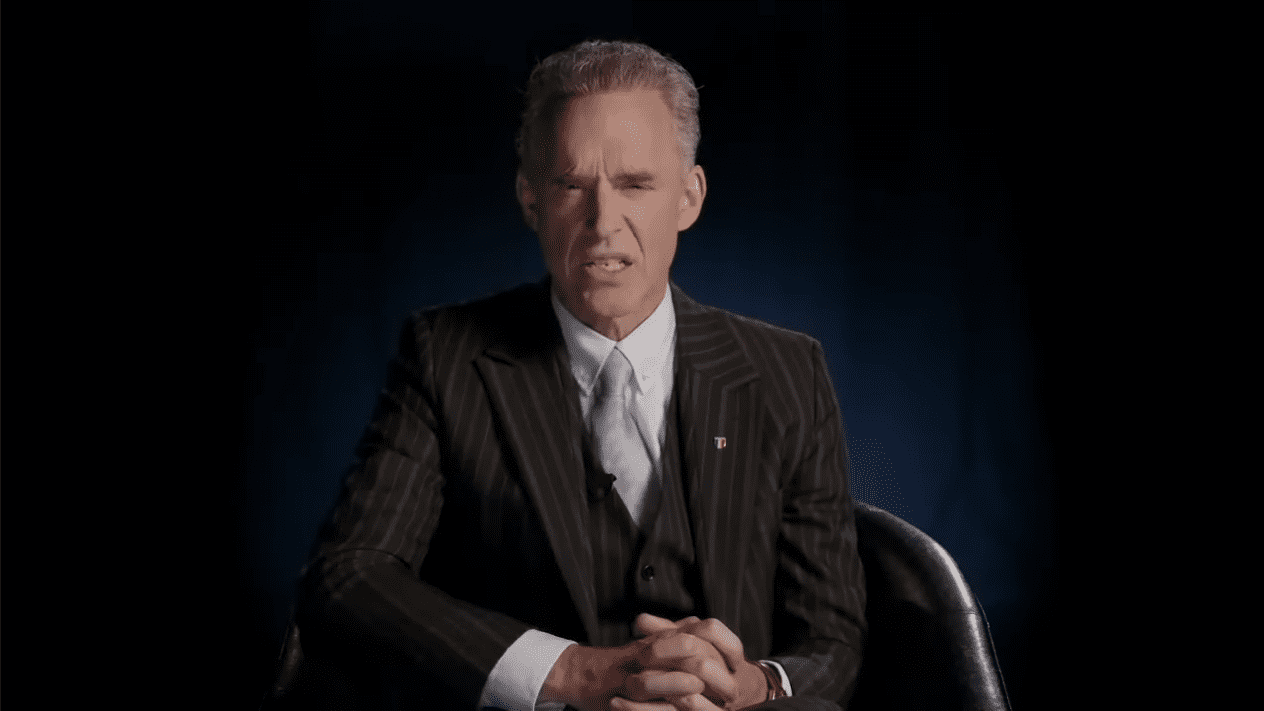
Growing up, I’ve always been very connected to the internet. In fact, I spent more time on the internet than I should have. It was my teacher, mentor, and friend. I imagine this wasn’t exactly uncommon among my generation. You’ve likely had a similar experience. In this simulacrum of reality, you become attached to popular people. These people create “content” in order to spread a message or cater to some market out there. They can tell you how to feel, how to think.
I often found myself attracted towards certain creators who spread some sort of message that I either wasn’t aware of, and I found compelling -or creators who were able to articulate something that had been in my subconscious mind that I had never been able to bring to the surface. There were also the entertainment creators. Those who made their living off of distracting us from our uncomfortable realities.
There is a very interesting, and disappointing pattern however, in the careers of these online “creators”.
They all started off innocent, and somewhat honorable. Whether it was H3H3, Sneako, or more modern examples -Mr Beast, to Jordan Peterson. They often had values, or at least, ones that they would stick to (whether they were good values is a different conversation). They all had some sort of path, or direction or dream they were trying to attain with this venture.
But the more people saw that dream, and wanted it to succeed, the more they grew. They grew in popularity and power, but also responsibility.
If you enter into the experience of these creators, this is what it was like:
The more people watch you, the less room there is for error. You have to watch what you say, and how you say it. The more people that you cater for, the less authentic you must become. Your body becomes a performance for others to project their desires onto you.

If you do not do this, you lose your growth and become irrelevant. The internet hivemind moves onto the new, shiny thing and discards you. Growth comes from continual investment into your project. This means constantly starting new projects, new shiny things for your audience to grab onto. These projects must be, at the bare minimum, better than the projects that came before. You must keep their attention to remind them that you deserve to have an audience in the first place.
All of this piles onto the responsibility and stress that you must endure on a daily basis. At some point, if the creator is able to stick it out to the end, they eventually get what they were going for. They achieve what they wanted. Maybe it was widespread acclaim, fame, money, succeeding in a social cause, making people laugh, or communicating a certain message. But what now? The purpose of this power is now void.
Corruption
The main, and common thing you see, is that at some point along the way, they lose their path. They become people who they probably didn’t want to be when they started out. They start behaving differently. Erratic, defensive, and egotistical. They no longer become rational, but emotional, judgmental, closed minded and critical of those that slightly oppose them.
They may become unethical in their business practices, or at the very least downright negligent. Developing scams, deceiving their audience. Maybe some of them start grooming minors. If they were public intellectuals, they become intellectually lazy. Their arguments sound less logical, and more rhetorical and emotionally charged.

They always say that power corrupts. But why is this the case? And is it really power, or is it something else?
The Mechanisms of Corruption
There are some popular ideas for why this happens and is such a widespread pattern.
Money corrupts. The more money you have, the more you think you can do things that you were not able to before. The perceived consequences of immoral actions are less. If money is a motivation, you are also more likely to become a puppet of your audience.
God complex. The more people that follow you, the more “Yes Men” you have around you to validate your thoughts and feelings. You become isolated in an echo chamber where reality is allowed to be warped in your favor.1
These are certainly true. But I would like to propose some other mechanisms that have been less thought about:
In order to grow their brand, they must appeal to a wider and wider audience. This means diluting down your persona and messaging so much that any rational or thoughtful analysis is discarded.
Emotional Wounds. The more you grow, the more things are likely to go wrong. These events become emotionally wounding and traumatic. If you’ve ever made a bad mistake at work, you can understand. These events build up into a “death by 1000 emotional cuts”.
Emotional Processing. The more your brand grows, the more you are non-stop focused on this endeavor. You have less time to slow down and re-evaluate your values and whether your actions align with your values.
The Emotional Processing Problem
I think all of these mechanisms are very important drivers for corruption, but I think that the most influential one is (5). This mechanism is the root of many of the others. The lack of slow, purposeful time by yourself to process your emotions is what creates corruptible people.
The more power you have, the more responsibility you have2. The more responsibility you have, the less time you have. The less time you have, the less emotional processing you are capable of doing. The less emotional processing you do, the more likely you are to be controlled by your traumas, you mind shifts towards a more primal space, and your limbic system takes over in times of crisis.
This is why these people become erratic, selfish, and dis-integrated. Their sense of self becomes a manifestation of their frustrations and accumulated traumas. They constantly seek to distract themselves or nullify the emotional pain they feel and constantly attack those who oppose them, while they get peers to validate their delusion. As a result, their Ego gets bigger, their anxiety skyrockets, and their world becomes shrouded behind a veil they cannot penetrate.

If you are a CEO of a successful firm that you built with your own hands, your schedule is packed with constant work. American CEO’s work an average of 62.5 hours a week. The average person only working 40 hours a week finds it difficult to de-stress and re-integrate themselves. Compounded with the scrutiny of those working under you, the media, and yourself. You can see how this CEO will become resentful, mean and a bad faith actor. They are no longer in control; their trauma and survival mechanisms are.
This explains why many celebrities end up having problems with substance abuse. Similar to the average person, we attempt to distract ourselves from our emotions by looking at our phones. (Notice that you always reach for your phone when difficult emotions come up.)
Exceptions
There are some obvious exceptions to this. It is also the case that the people who tend to get power, tend to be people who have bad values, or no values at all. In a competitive market system, the ability to be manipulative, and have no regard to morals, or doing the right thing, can be a competitive advantage. The system selects for psychopathic and sociopathic temperaments. In this sense, the individual was never honorable in the first place but corrupted from the outset.
Building Honorable Leaders
Given these conclusions, leaders need to:
Create adequate space in the week for emotional processing. This can be meditation, going for walks, being honest about your feelings, idle tasks like crochet, driving or doing the dishes.
Surround yourself with people who can and will disagree with you. This can be proactively selecting people around you who are honest. Regularly engage in good faith debates with the opposite side. It can also be an argument for free speech or against online echo-chambers.
Do not grow too fast. Make your brand slow but steady. Stop at the point where you are just able to emotionally cope.
Don’t make money the focus of your motivation, and make sure that it stays this way in the future. You could set up your brand as a not-for-profit, set boundaries on the amount of money you make or the amount that
I propose that if many of these problematic figures simply had time to slow down, and re-evaluate their values, actions and heal - they would become much wiser, thoughtful and stronger cultural leaders. They wouldn’t become puppets of their own reactions.

Instead, we get the political commentators, Andrew Tate, Sneako, Jordan Peterson, Hasaan, F.D. Signifier and many more who, whilst they may have started out good (or at least neutral), became bad actors (in certain aspects) through forces that they had little control over. We also get celebrities, government leaders, corporate executives and so on, who enter the space with good intentions, and become changed by it. You see hatred and distaste for a certain group of people, in-group biases infecting their minds. This can manifest in the adoption of some certain ideology, emotional black-and-white thinking, prejudice and so on. They also become reflections of their audience’s hatred and ideology.

Conclusions
It is simply something I have noticed, whenever there is a new creator who stands for something, there is a “test” they must go through. Do they continue to be honorable, or will they succumb to doing something completely against their initial values? Most fail. Let me know if this reflects what you have noticed in those who gain leverage and power in society. I would very much like to use this psychological understanding to help people to stave off corruption, rather than the same old “accountability” solution that we see often.3
Your reality and ideas should be tested by external validation. If you do not have external validation, you risk having an inaccurate (or maladaptive) model of the world.
I will grant this does not apply in all cases. Investors have lots of power, but near no responsibility.
Sometimes accountability, like pushing back on bad behavior can cause even worse behavior later down the line. This is because the person can internalize this “pushing back”, as yet another trauma. Which results in more unstable and dis-integrated behavior, suggesting them to resist even more. Approaching with compassion and empathy can sometimes break this cycle.



This is something I've thought a lot about too with the disintegration of who I once thought Jordan Peterson was (a man of integrity) rather than what he is (a relentless attention seeker). It's the same across even the good guys and true believers: only the attention seekers go ham on self promotion. For every brilliant famous person there's probably 10 more brilliant anonymous versions out there. Every famous doctor is famous because they pursue being famous, not because they're good at medicine.
Take Neil deGrasse Tyson. Is he the best scientist out there? Probably not even in the top million. But no question he'd be near the top in desiring fame.
Another example of this is comedy. Every construction site on earth has a guy funnier than Joe Rogan. Hell, even the comment sections on pre 2015 Reddit would regularly feature comedic genius. These dudes are just sitting behind a keyboard somewhere, absolute nobodies. With talent greater than the pros.
Few have the will or desire for the constant attention of modern fame and even fewer the stomach. So this whole corrupting thing, there's a huge selection bias already at play.
And as much as I hate to even reference his schizo ramblings, The Last Psychiatrist was right about narcissism, at least in its definition if not its scope. So I think that's a big part of the selection bias too, these examples of corruption are likely extreme narcissists and always were. The defensive outbursts are the mask slipping.